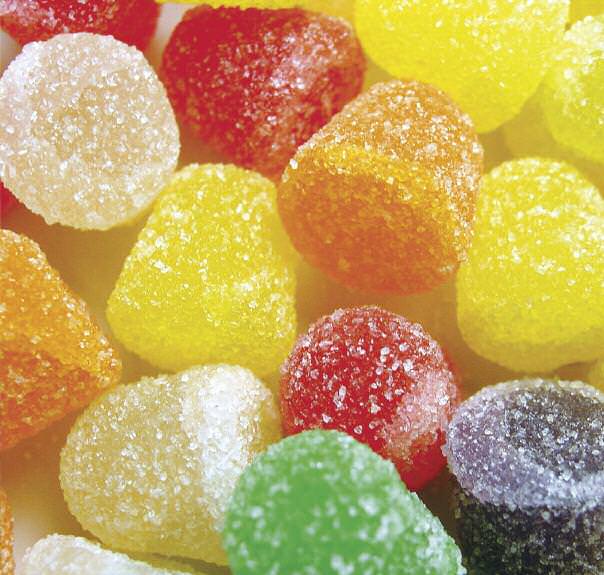edible nutrition
SUPER SWEETS
Revealing healthy sugar alternatives
WRITTEN BY MICHAEL GERBER, MD, HMD
Sweets are a part of life. When you have a sweet craving it is advisable to choose the least toxic variety of the many products available. Although not inexpensive the following alternatives offer health benefits and less health detriments than common table sugar (sucrose) and, heaven forbid, high fructose corn syrup (said to consist of genetically modified corn soaked in glyphosate and Roundup herbicide).
Xylitol
Xylitol is a natural sweetener found in many fruits and vegetables. Dental and medical professionals use xylitol worldwide as it has been clinically proven to fight cavities and reduce plaque. Xylitol tastes like sugar with one-third fewer calories. It is recommended for people with diabetes and hypoglycemia because it has a low glycemic index of 7, meaning it turns into glucose in the blood very slowly. Found in xylitol toothpaste it also is used as a nasal spray in saline (salt water) for the neti pot or nasal irrigation to inhibit the adherence of bacteria and allergens to the nasal and sinus linings. It thereby helps allergy and chronic sinusitis sufferers. One little downside to xylitol is that it can be flatus (gas) producing.
Stevia
The best non-caloric sweetener by far is Stevia. It is truly natural and comes from a Southern Hemispheric herb, Stevia rebaudiana, known locally as sweet leaf or sugar leaf. Extracts of the herb have been used as a sweetener for centuries without any documented ill effects. Stevia leaves are 30 times (and the purified extracts are 200 times) as sweet as sugar. Stevia’s taste and aftertaste vary so try several varieties.
Coconut Sugar
This gourmet product from the coconut palm has a delightful caramel flavor and is full of essential minerals, vitamins, and amino acids. It also is environmentally friendly and expensive.
Honey
Honey is a good sugar for many reasons. It contains healthful nutrients, antioxidants, and friendly bacteria that improve the immune system and enhance endurance in athletes. The composition of sugars in honey is ½ glucose and ½ fructose, which has a more favorable glycemic index than sucrose (table sugar) and is converted into glycogen in the liver for sustained energy production. It is a great preservative and wound healer, producing small amounts of peroxide, which kills viruses, bacteria, and fungi when applied to wounds or burns. Buckwheat honey is a better cough treatment for children than dextromethorphan and is not recommended for children under 1 year of age because of rare exposure to botulism.
The common belief that local honey is a good treatment for allergies was disproven in an article published in The New York Times in May 9, 2011, citing a 2002 University of Connecticut Health Sciences study. In the study, published in the Annals of Allergy, Asthma and Immunology in 2002, scientists followed dozens of allergy sufferers through springtime allergy season. The subjects were randomly split into three groups. One consumed a tablespoonful daily of locally collected, unpasteurized, and unfiltered honey; another ate commercial honey; and a third was given a corn syrup placebo with synthetic honey flavoring. After tracking the subjects’ symptoms for months, the scientists found that neither of the honey groups saw improvements over the placebo group.
“Seasonal allergies are usually triggered by windborne pollens, not by pollens spread by insects,” says Dr. Stanley Fineman, president-elect of the American College of Allergy, Asthma and Immunology, who had seen a growing number of patients asking about local honey. “So it’s unlikely that honey collected from plants that do not cause allergy symptoms would provide any therapeutic benefit.”
Conscious selection of good sweeteners in the marketplace makes for a happy and healthy family.
Michael Gerber, MD, HMD, is medical director of Gerber Medical Clinic in Reno and is President of the Nevada Homeopathic and Integrative Medical Society. Gerber is a featured monthly columnist in the Townsend Letter and Healthy Beginnings Magazine. For details, visit www.Gerbermedical.com.


